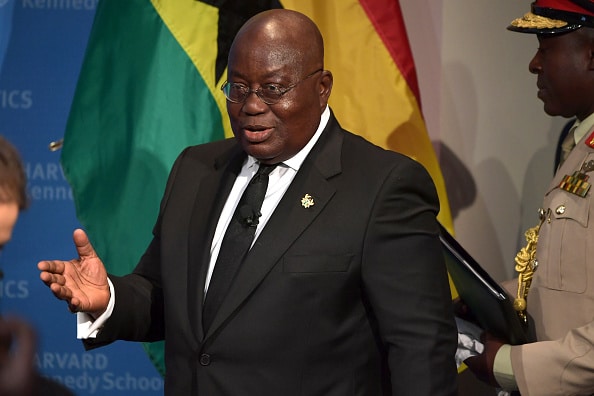“If we focus on humanity, accountability and the citizenship of the people over the next 60 years, Ghana should become a truly shining example, not only on the continent of Africa but globally.” – Former Ghanaian President John Kufuor

In 2017, 60 years after Ghana claimed independence, President Nana Akufo-Addo and the NPP political party came into power amidst much rejoicing, optimism and hope around the country. The administration immediately displayed its intention to build a budding economy replete with developed infrastructure and programs to fortify the agricultural, financial and energy sector, focusing all the while upon its large population of youth. “The hope for the youth is very significant” Vice President Mahamudu Bawumia states “which is why we’ve initiated a policy of free secondary school education to prioritize our most important resources, the children.”
The industrial policy ‘1-District-1-Factory’ is President Akufo-Addo’s flagship and representative of the administration’s vision and ambition for Ghana. It was launched as a project aimed at creating jobs for the youth and eventually reducing the developmental gaps and rural-urban migration. The idea is to build a factory in each of Ghana’s districts establishing as President Akufo-Addo claims “at least one major industrial project, based on the natural endowment of economic potential of each district.” In this way value will be added to Ghana’s very rich and vast raw materials by processing them on the very land where they grow. This will reduce importation and increase food availability as well as allowing the participation of the private sector.
Loading...
To promote the growth and development of entrepreneurship and to accelerate youth job creation, President Akufo-Addo has also introduced the National Entrepreneurship and Innovation Plan (NIEP). The government’s approach to stimulate enterprise activities and provide integrated national support for start-ups and small businesses. “There are a lot of unemployed youth who could be employed” states Dr. Aaron Issa Anafure, CEO of SIC Life “not directly by government but with their help, they can fund them to set up their own businesses.”
Ghana’s mission to be a leading entrepreneurial country is dependent on Minister of Finance Ken Ofori-Atta’s major tax reforms. These focus mainly on the abrogation and reduction of the taxes that have been holding back the growth of the private sector. “Ghana represents a pillar of stability in the region and it is our job to let the black star shine again and attract the needed investment to create a region that is both productive and profitable.” Hon. Ken Ofori-Atta states, “We have started the reforms to get the private sector to work again. We aim to provide stable exchange rates, lower interest rates, stable energy supply, a shift in taxation to support growth, while spending in critical areas of the economy.”
Ghana’s efforts to focus on the private sector to boost the economy and financial sector has brought about transparency and accountability. Clearance of goods from Ghana’s ports will be 100% paperless while all internal customs barriers in the country will also be removed to facilitate the movement of goods. Dr Ernest Addison, Governor of the bank of Ghana confirms the positive and swift change taking place, “Ghana is making progress on all fronts, that is politically, socially and economically. One of the few democratically stable African countries… Ghana has vast potentials of natural resources and investment opportunities, with friendly people and a favourable business climate.”
Loading...
